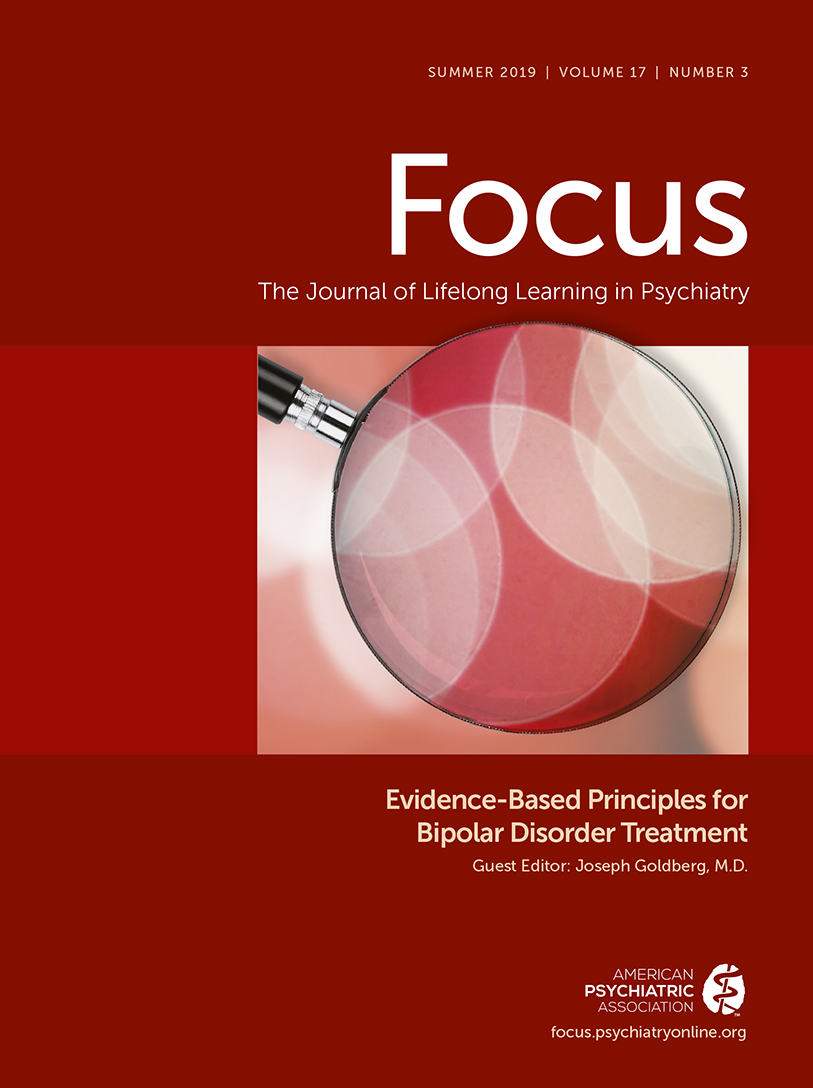Evidence-Based Psychotherapies for Bipolar Disorder
Abstract
Bipolar disorder is a recurrent psychiatric disorder marked by waxing and waning affective symptoms and impairment in functioning. Some of the morbidity and mortality associated with the illness may be reduced with evidence-based psychotherapies (EBPs) along with pharmacotherapy. To enhance clinicians’ understanding of which therapy modalities have evidence supporting their use, the authors conducted a systematic literature review to identify randomized controlled trials (RCTs) of psychotherapy for adults with bipolar disorder. A strong evidence base exists for psychoeducation, cognitive-behavioral therapy, family-focused therapy, interpersonal and social rhythm therapy, and peer-support programs. Promising modalities include functional remediation, mindfulness-based cognitive therapy, illness management and recovery, and technology-assisted strategies. RCTs demonstrate a consistent advantage of these psychotherapies plus pharmacotherapy, compared with the use of pharmacotherapy alone. Adjunctive EBPs hasten time to remission, delay time to recurrence, and improve functional outcomes. EBPs play an important role in helping individuals develop skills needed to manage the persistent and lifelong psychosocial, neurocognitive, vocational, and interpersonal consequences of bipolar disorder. Continued efforts to improve the effectiveness of EBPs for adults with bipolar disorder are warranted.



